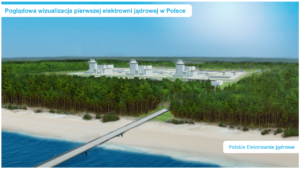Financial Times has published criticism of Poland, Ukraine and the US – opponents of Nord Stream 2. It deserves a short response – writes Wojciech Jakóbik, editor-in-chief of BiznesAlert.pl.
A commentary by Eugen Rumer, the head of the Russia and Eurasia program in Carnegie Endowment for International Peace was published in the Financial Times. The author criticizes Poland, Ukraine and the USA for opposing the Nord Stream 2 project.
Gazprom’s dominance
According to Rumer, US President Donald Trump opposes the Nord Stream 2 gas pipeline, which is to connect Russia with Germany by the end of 2019, due to the desire to develop LNG exports to Europe, which would „rebalance the transatlantic trade”. Trump warned Chancellor Angela Merkel that Nord Stream 2 will increase Europe’s dependence on gas from Russia. The author of the text in FT argues that it is not important, because the Russians are responsible for 37 percent of supplies to the European Union.
In this case he uses generalization, because if you look at the regions, there are countries in Central and Eastern Europe that are even 100 percent dependent on one supplier, namely Russian Gazprom. In turn, the European Commission stated that Gazprom abused its dominant position in this region. In addition, Nord Stream 2 is to supply Central and Eastern Europe, and by that ground the dominance of Russian gas in the region, despite the alternatives on the horizon.
Interdependence does not work
Carnegie’s representative goes further. He claims that dependence on Russian gas rises the Russian dependence on the European market. – Russians need Europe’s money just as Europe needs Russian fuel – he writes. In his opinion, the Russians can no longer impose conditions thanks to the development of the market and competition. Again, this development will be limited by Nord Stream 2. In addition, the interdependence between Europe and Russia did not prevent the illegal annexation of Crimea and interfering with democratic elections in the West. Rumer’s next thesis is therefore strained.
Gazprom is not always the cheapest
The author of the text rightly admits that Russian gas is usually cheaper than LNG from the USA, but these trends may change. Rumer does not see the fact that the Copernican breakthrough and the precedent in the form of the first contract indexed to the European stock exchange, thus competitive to European prices, that is the PGNiG-Centrica agreement for the supply of American liquefied gas, has already taken place. He claims that most of LNG from the US will go to Asia, but does not see that in the face of a rebound in oil prices this trend may soon change, because the attractiveness of contracts indexed to oil, and thus the majority of long-term contracts of Gazprom will fall.
It is worth noting that Gazprom’s long-term contracts are in certain cases the most expensive of all offers available on the market, like in the case of the contract with PGNiG according to declarations of the Polish company.
War in Ukraine continues
Carnegie’s representative also claims that Ukraine opposes to Nord Stream 2 because it is afraid of losing revenues from the transmission of Russian gas. In his opinion, Ukraine wants to strengthen this dependence in this way and this is a wrong policy. However, it is worth looking deeper and recognizing that revenues from the transmission of Russian gas are almost equal to the defense budget of Ukraine, which is important from the point of view of the occupation of Crimea and the ongoing fighting in the east of the country, for which Russia is responsible. The FT author does not see this.
The baton of nationalism
He goes on to criticize Poland, known for its „anti-Russian and anti-German” policy. In his opinion, the criticism of Germany is unjustified, because Nord Stream 1 did not stop Berlin from introducing sanctions in exchange for the annexation of Crimea by Moscow. On the other hand, Poland and Ukraine are increasingly pursuing a „nationalist” policy that may discourage Germans from taking over leadership in the European Union. Apart from the non-historical epithets addressed to Kiev and Warsaw, the author does not ask how the German Nord Stream 2 project promoted by Berlin to defend a particular interest at the expense of the Community affects Germany’s credibility as a European leader.
It’s time for a response
To sum up, the Carnegie Endowment for International Peace commentary is full of simple answers that are not enough to understand the problem of Nord Stream 2. Non-substantial attacks on Poland, Ukraine and the USA deserve a solid answer, preferably also in the Financial Times.








